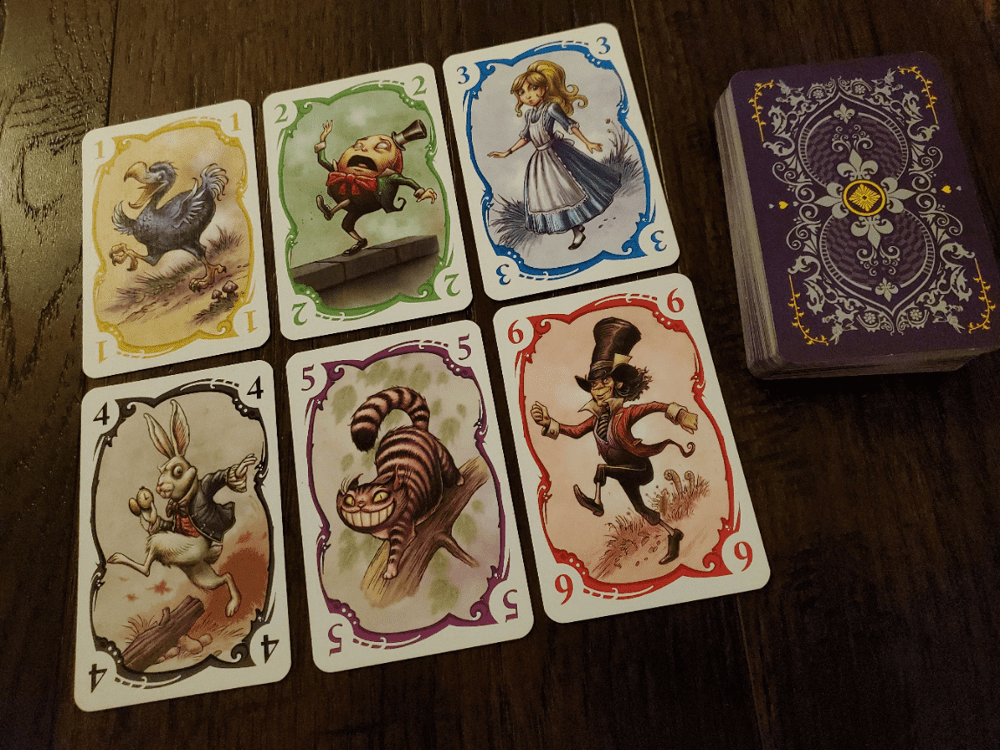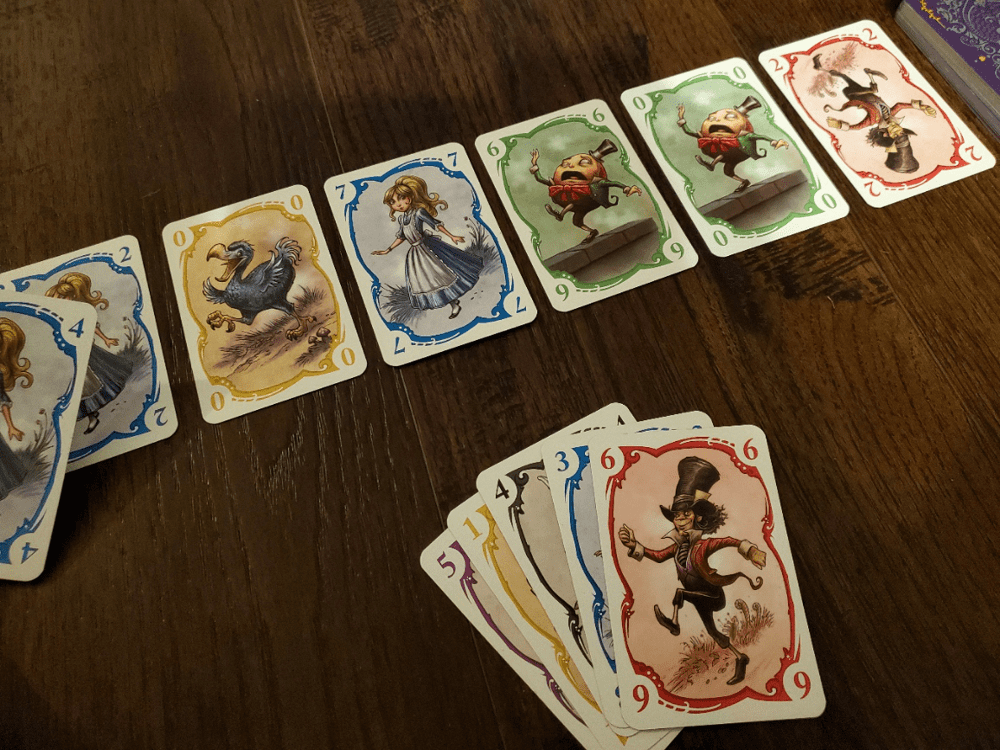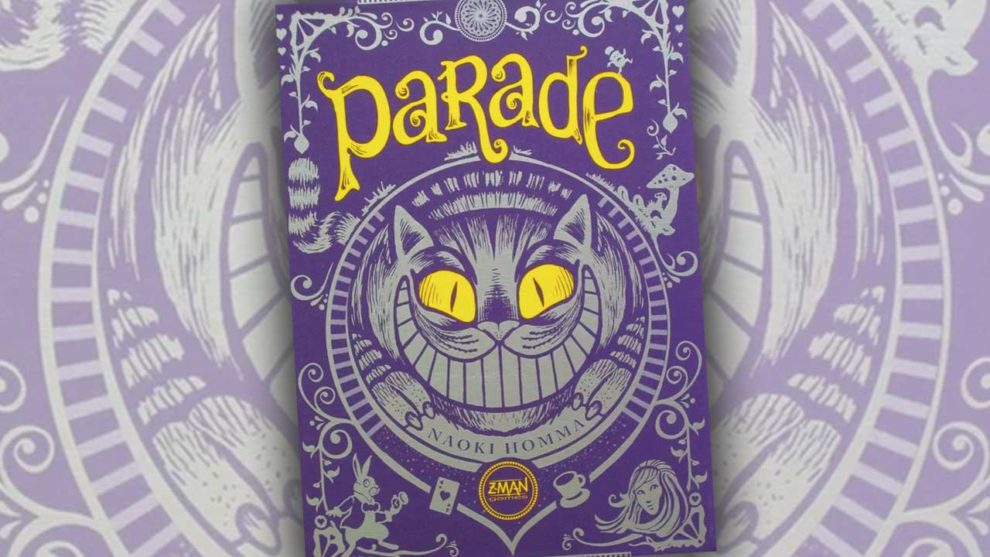“You’ll notice the artwork on the cards depicts characters from Alice in Wonderland and they are, you know, lined up like they’re in a parade. And that’s about it for the theme.”
I’ve said this line or something very close to it every time I’ve taught someone to play Parade. Strangely, this disinterested theme only makes me love the 2007 release even more. Parade, from Z-Man Games and the mind of Naoki Homma, feels like the sort of game played a century or more ago with a standard deck of cards, albeit in a slightly modified form.
The Parade deck consists of six colors of cards, each numbered zero through ten, with a character of Wonderland denoting a suit (of sorts). The game begins with a line of six face-up cards and a draw pile. Players lay a single card into the parade, perform a brief appraisal, and possibly collect cards to display.

The appraisal is thus and so: After laying the card, count off the number of cards matching the number played. Of the remaining cards, collect and display any that are of equal or lesser value or the same color before drawing another card. The ideal is to avoid card collection for most of the game, but as the parade gets longer, that ideal fades like the smoke ringlets from a caterpillar’s hookah.
The game ends one turn after a player either collects one of each of the six colors or the deck runs out. Players do not draw a new card after their final turns, after which they discard two cards and lay the other two into their tableau. For each card color, the player who accumulated the most cards flips them face-down, treating each as a single point. All other cards are scored at face value and the lowest score wins.
Maybe the theme runs deeper than I imagined
Following the first explanation of the rules, most folks look like they’ve just fallen down a rabbit hole. Two turns later, they understand completely. Parade’s rhythm is actually quite friendly upon the mind.
Following the explanation of the scoring, they show all the disorientation of one who has spent a bit of time with bottles and plates labeled Eat Me and Drink Me. The notion of avoiding cards at all cost makes sense, as does the notion of then collecting only the slightest cards. The noggin goes off the rails upon adding that once you’ve taken any cards in a color, it behooves you to make sure you have the most of that color, and even more so when you try to figure out how exactly to make that happen.

Passively experiencing Wonderland is no difficulty. Arriving at a semblance of control in Wonderland is another matter altogether. The disorienting challenge of this strange world of cards gives me thorough enjoyment. There is excitement engulfing the transition from wanting zero cards to wanting just one (or two in the two-player game) more than anyone else. There is thrill in suddenly disregarding card value in the measured pursuit of card quantity. There is agony in deciding whether to seek the sixth suit and an early end. There is—wait for it—wonder in staring around the table at the bevy of revealed cards in cold calculation as to which two endgame cards will best force a suitable result.
Perhaps the best part is that there is still ample room for a good conversation. LIke many a classic card game before it, Parade’s greatest delights are instinctively social without a single mechanic imposing or even suggesting such a thing. It owns a simplicity that begs multiple plays and more time together.
Parade has been around long enough that there is little left to be said. It’s a very good game, one that feels like it should be older than Wonderland itself. I doubt it’s going anywhere anytime soon, either from my collection or the broader tabletop world. If ever you’ve loved a game according to Hoyle, you’ll probably celebrate this one, too.












Add Comment